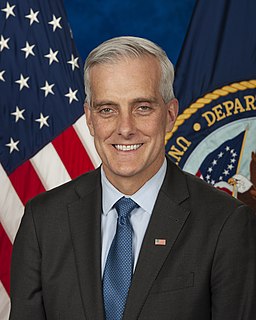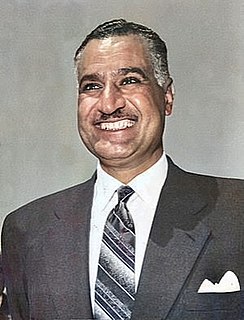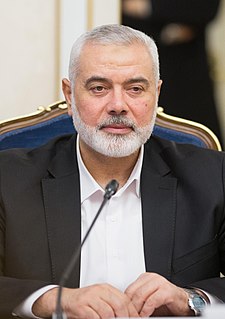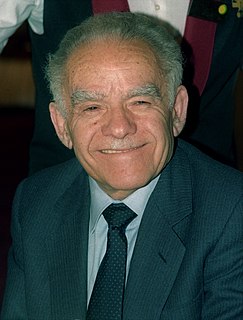A Quote by Anthony Crosland
Unless the Arab states give Israel formal recognition, within secure, recognised and mutually agreed boundaries, as a permanent feature of the geography and politics of the Middle East. But if Israel is to obtain this recognition, she must, in a settlement, put an end to the territorial occupation which she has maintained since the war of 1967; the nine members of the European Community have declared that this is an essential element in a settlement. On behalf of the British Government I underline that need today.
Quote Topics
Agreed
Arab
Behalf
Boundaries
British
British Government
Community
East
Element
End
Essential
European
Feature
Formal
Geography
Give
Government
Israel
Maintained
Members
Middle
Middle East
Must
Mutually
Need
Nine
Obtain
Occupation
Permanent
Politics
Put
Recognised
Recognition
Secure
Settlement
She
Since
States
Territorial
Today
Unless
War
Which
Within
Related Quotes
We must formulate, with both imagination and restraint, a new approach to the Middle East - not pressing our case so hard that the Arabs feel their neutrality and nationalism are threatened ... while at the same time trying to hasten the inevitable Arab acceptance of the permanence of Israel ... We must ... seek a permanent settlement among Arabs and Israelis based not on an armed truce but on mutual self-interest.
We also share a profound desire for a lasting peace in the Middle East. My Administration is dedicated to achieving this goal, one which will guarantee Israel security. At the same time, we will do our utmost to defend and protect Israel, for unless Israel is strong and secure, then peace will always be beyond our grasp. We were with Israel at the beginning, 41 years ago. We are with Israel today. And we will be with Israel in the future. No one should doubt this basic committment.
Israel exists; it has a right to exist in peace behind secure and defensible borders; and it has a right to demand of its neighbors that they recognize those facts. I have personally followed and supported Israel's heroic struggle for survival, ever since the founding of the State of Israel 34 years ago. In the pre-1967 borders Israel was barely 10 miles wide at its narrowest point. The bulk of Israel's population lived within artillery range of hostile Arab armies. I am not about to ask Israel to live that way again.
Israel's democracy is the bedrock on which our relationship stands. It's a shining example for people around the world who are on the frontline of the struggle for democracy in their own lands. Our relationship is also based on our common interest in a more stable and peaceful Middle East, a Middle East that will finally accord Israel the recognition and acceptance that its people have yearned for so long and have been too long denied, a Middle East that will know greater democracy for all its peoples.
So much of the United State's political relationship with Israel is based on culture. Israel is the only Westernized culture in the region and the Middle Eastern countries bordering Israel are Arab, which is a totally different society. Even though Israel doesn't exactly feel like the United States, by comparison to its neighbors it's very Western.
I've often made critical comments about settlement expansion in the occupied West Bank and in east Jerusalem, and my position hasn't changed. At the same time, it's equally important to me that the two sides, both Israel and the Palestinians, work towards a durable peace settlement: that's to say a viable two-state solution.


































